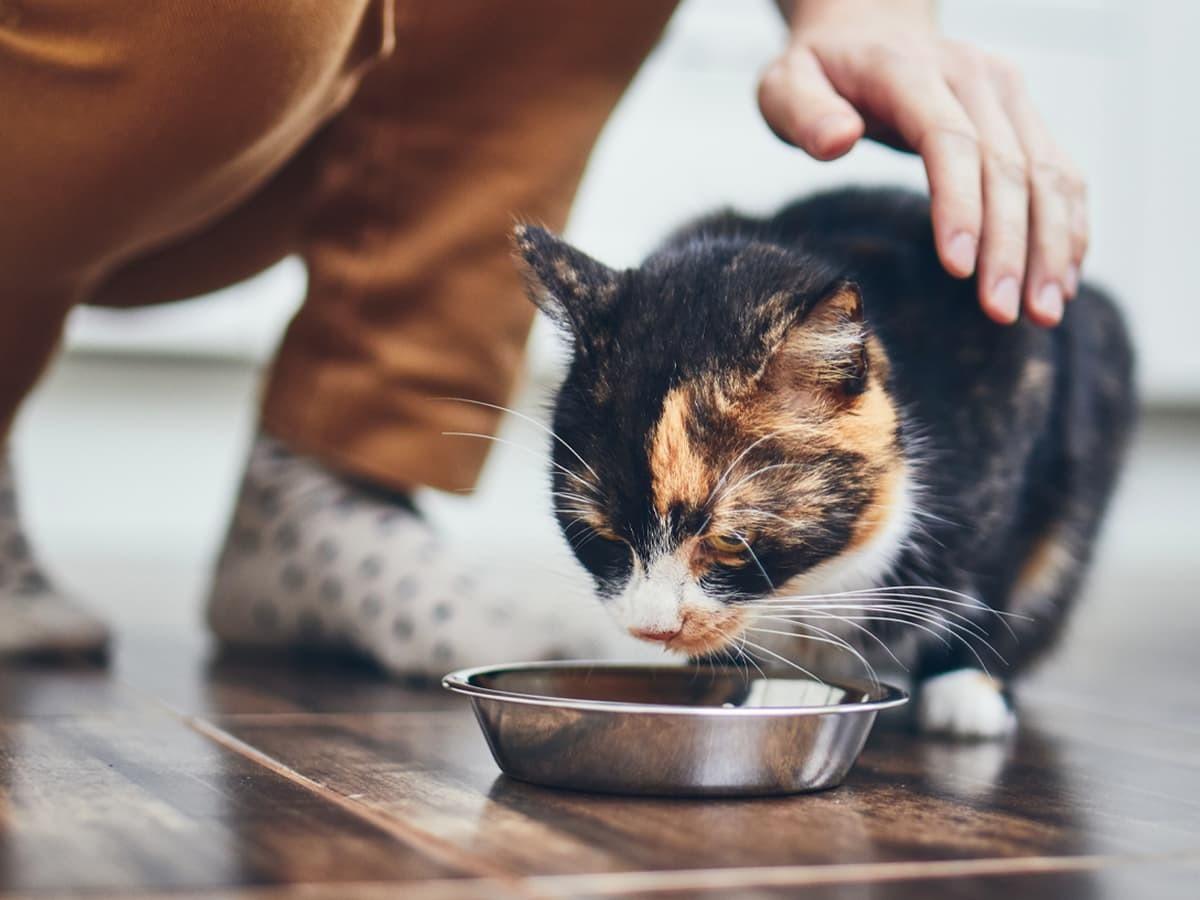Pomegranates originated as early as the fifth millennium BC in the region between modern-day Iran and northern India. These fruits have been symbols of fertility, prosperity, and abundance in various cultures for thousands of years. They are often associated with life, regeneration, and eternal life. Pomegranates are used in a variety of culinary creations in the US, including salads, sauces, cocktails, and desserts. They also find multiple applications in the health and wellness industries given their rich medicinal properties.
Can cats eat Pomegranate?
While pomegranates are non-toxic and can technically be eaten by cats, there are a few risks that come with adding this fruit to your pet's diet.1 The cons of adding pomegranate to your cat's diet outweigh the pros, so we do not recommend this fruit as a good treat option for your cat.
Do cats like Pomegranate?
Cats are often intrigued by the foods that we eat, attracted by the colors and smells on our plates, even if they can't taste the sweetness of fruits or other dishes. If your cat is curious to try pomegranate, should you let them try a bite?
Is Pomegranate good for cats?
One cup, approximately 174 grams of pomegranate contains the following2 -
Calories: 144
Total Carbohydrates: 32.5 grams
Dietary Fiber: 7 grams
Sugar: 23.8 grams
Protein: 3 grams
Vitamin K: 46.2 micrograms
Potassium: 411 milligrams
These fruits are rich in antioxidants as well. While humans can benefit from all of these nutrients, cats are not able to extract all of the same benefits.
Health Benefits of Pomegranate for Cats
Pomegranates are very low in calories and have no cholesterol or saturated fats. The fiber in them can assist digestion in kitties. Potassium, vitamin K, and folic acid found in the fruit are all known to support the health of red blood cells, and folic acid also helps metabolize fat and supports your cat's growth and development as they age.3
On the other hand, there are a few risks to feeding your cat pomegranates. A cat's digestive system is not well-equipped to process some of the compounds found in pomegranate, including tannins and certain acids, so some cats can experience an upset stomach after eating it. Pomegranate seeds also pose a choking risk for your cat. So it is best to keep this fruit out of their diet.
Risks of Pomegranate for Cats
Digestive Upset: The seeds and arils of pomegranate contain tannins and certain acids that can be difficult for a cat's digestive system to process. So while I small amount of pomegranate isn't likely to make your cat sick, if they eat too much they can experience stomach upset, diarrhea, or other digestive issues in cats.
Choking Hazard: The seeds of pomegranate pose a choking hazard to cats. If a cat consumes pomegranate seeds, there is a risk of the seeds becoming lodged in the throat or obstructing the digestive tract. Read this article to learn what to do if your pet is choking.
Allergic Reactions: Cats may have allergic reactions to pomegranate, leading to symptoms like itching, skin irritation, or gastrointestinal distress.
Nutritional Imbalance: Pomegranate is not a part of a cat's natural diet and does not provide the essential nutrients required for feline health. Introducing pomegranate as a dietary supplement may disrupt the nutritional balance of a cat's diet. Discover nutrition and diet tips for your cat!
How Much Pomegranate is Okay for Your Cat?
A very basic fundamental to understand is that your cat is carnivorous. So, most of its nutritional requirements should be fulfilled from meat and other cat foods. Pomegranate should not be a part of your cat’s regular diet, and should only be given as occasional treats, if at all.
Can Cats Have Pomegranate Juice?
It is not recommended to give pomegranate juice to cats. Like the fruit, pomegranate juice is not part of a cat's natural diet and may pose risks to your feline friend’s health. The juice contains concentrated amounts of the compounds found in the fruit, including tannins and certain acids, which can be difficult for a cat's digestive system to process.
Expert Insights From Spot
Treating your cat to a taste of your favorite foods might seem like a kind gesture, but many human foods are not safe for pets. Spot's internal data shows that pet insurance claims for dietary indiscretions average $642*, emphasizing the importance of ensuring that what we share with our cats is safe.
Conclusion
Pomegranate can provide multiple benefits to you but when it comes to your cat, the potential risks outweigh the benefits. Hence, while these fruits are not toxic, we do not recommend adding them to your cat's diet, because of the choking hazard that the seeds pose.

I've had the privilege of immersing myself in the realm of pet safety. As the owner of an energetic mini golden doodle, I know just how stressful being a pet owner can be. I am dedicated to ensuring our beloved pets enjoy a life brimming with good health.
*Claim reimbursement examples are based on administrative data from 2019 to 2024. Actual reimbursement amounts may vary depending on plan type and options, including annual limit, co-insurance, and annual deductible, as well as the specifics of the claim and your policy terms.
Smithfield, Granny. "Can Cats Eat Pomegranates?" Minneopa Orchards, 16 Jan. 2024, https://minnetonkaorchards.com/can-cats-eat-pomegranates.
“Pomegranate Seeds.” SnapCalorie, n.d., www.snapcalorie.com/nutrition/pomegranate_seeds_nutrition.html.
Layne, Misty. "Can Cats Eat Pomegranates?" Hepper, 15 Aug. 2024, https://www.hepper.com/can-cats-eat-pomegranates.
The information presented in this article is for educational and informational purposes only and does not constitute or substitute for the advice of your veterinarian.












